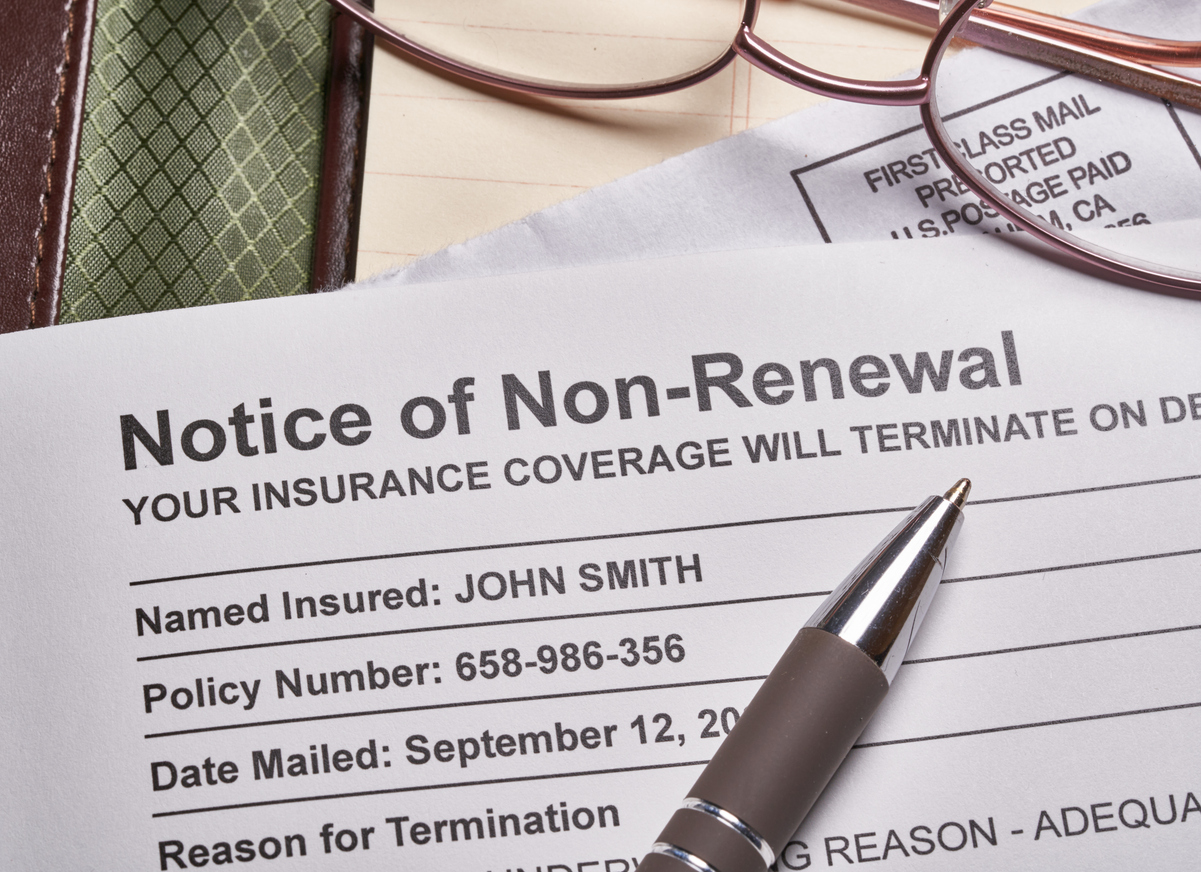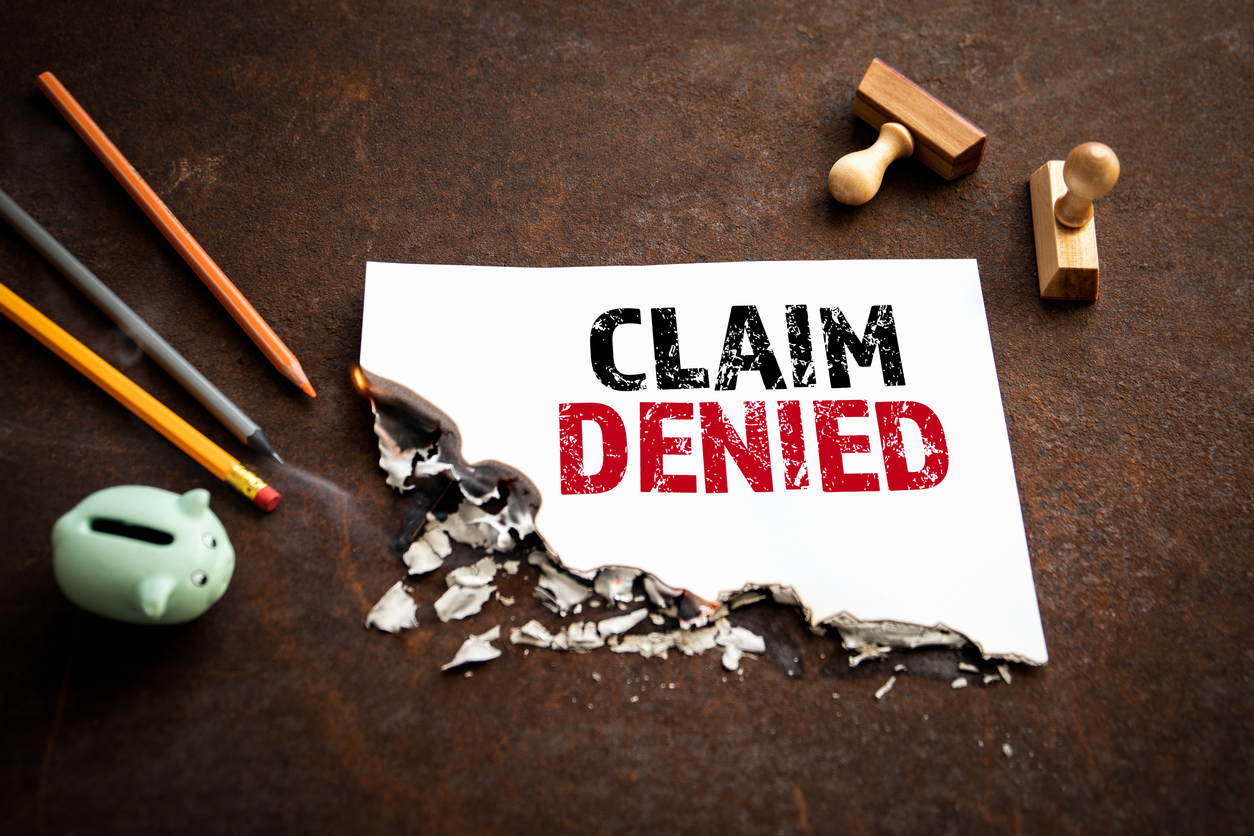Insurance restoration contractors play an important role in a policyholder’s, and often community’s, recovery following a disaster. Many restoration contractors have contracts calling for them to be paid what the insurance company agrees to pay on a claim. Those same contractors have Assignment of Benefit contracts (AOB’s) to ensure payment of claims monies for the repair work they do. This is a normal method of operation throughout many states after disasters happen. Policyholders want to immediately start with their repairs but have not finalized the amounts owed to do the repair work with their Insurance carriers.
A recent enforcement action in California1 declared these business methods illegal and found AOB’s to be unenforceable. This December enforcement decision should be read carefully by insurance restoration contractors to make certain that they are not in violation of a particular state’s unfair business practices laws and public adjuster laws. It calls into question the legality of many typical insurance restoration contracts and the ability to enforce liens through AOB’s.
The Order preventing the contractor from using and enforcing AOB’s is quite clear:
Seeking or accepting any assignment of the insurance benefits of any person, partial or complete, for whom the defendants are making repairs to real property, or seeking to enforce any assignment of benefits the defendants have already received from any person with whom the defendants have contracted to make repairs to real property.
Like most states but not all, California construction contracts are required to state the total amount of monetary consideration of a construction project and what is specifically going to be done by the contractor. Since this may be costly and difficult to determine the exact amounts required to make repairs immediately following a loss, many contractors make agreements with policyholders that say they will do the work for the amounts ultimately paid by the insurance company or have placeholder monetary amounts listed in contracts. The California Court found this practice illegal:
[T]he People have proven by a preponderance that the defendants violated the FAL, by promising homeowners who had suffered re damage to their homes that the defendants would negotiate with the homeowners’ insurers regarding what the insurers would pay on the claim. This was false or misleading because the defendants could not lawfully negotiate with the insurers regarding the homeowners’ insurance claims. The defendants also included repair costs in contracts which were presented to homeowners which were untrue, because the defendants did not actually intend in good faith to complete repairs for the included cost, instead intending to use those contracts to negotiate increased cost with the homeowners’ insurers. Mr. Nordeman even testified the numbers were just ‘placeholders’. These false costs were false and misleading statements meant to sell the defendants’ services to those homeowners who were presented the contracts.
The second set of violations involved similar actions but centered on contractors offering claim negotiation and insurance coverage interpretation services which only licensed public adjusters can legally perform:
The People’s second cause of action alleged violations of Business and Professions Code §17200 et seq. Section 17200 denes ‘unfair competition’ to include any ‘unlawful, unfair or fraudulent business act or practice’. . .the People needed only prove the defendants committed either an unlawful, unfair or fraudulent business act or practice….
[T]he People have proven by a preponderance that the defendants violated each of the underlying laws at issue in this case by making false or misleading statements in violation of the FAL, engaging in unlawful public insurance adjusting in Violation of the Public Insurance Adjuster Act, and by using unlawful home improvement contracts….The laws which contractors must follow are very specific, and the law public insurance adjusters must follow is specific. The fact the defendants may feel they have the expertise to negotiate with insurance carriers regarding homeowners’ insurance claims does not comport with the current status of the law.
The court made the following general statement about the evidence and how these defendant contractors illegally conducted business, including the use of AOB’s:
The evidence showed defendants are licensed contractors who solicit homeowners who have suffered fire damage to their residential properties. The defendants offer to negotiate with the homeowners’ insurance carriers ‘at no cost’, in return for the contract to make repairs, for the full proceeds paid on the homeowners’ insurance claim. Defendants advertise through their website, and by directly contacting homeowners who have suffered fires to offer their services. The defendants use flyers that describe their services, including promising to negotiate with the homeowners’ insurance carrier to increase payment for repairs. As part of their offers to negotiate with insurers, the defendants entered into contracts, as a matter of course…described as ‘consulting’ or ‘construction consulting’ contracts. These…contracts called for the defendants to negotiate with the homeowners’ insurance carriers regarding what the defendants describe as the ‘true value’ of the repairs to be paid by the insurer.
This was unlawful because negotiating for or seeking to affect the outcome of an insurance claim, for profit, is public insurance adjusting, which is regulated by the Public Insurance Adjuster Act. To engage in public insurance adjusting, defendants needed to be licensed, and to comply with all conflict of interest and consumer protection regulations contained in the Public Insurance Adjuster Act. The Court finds the defendants are not and have never been licensed as a public insurance adjuster and did not comply with the applicable conflict of interest regulations or consumer protections….a contractor is not a party to the homeowners’ insurance claim, and has no business getting involved in the settlement process. However, the defendants did exactly that numerous times.
…
The Court has specifically considered the vulnerability of the homeowners who had suffered fire damage, the sophistication of the defendants’ business operation, the ongoing and persistent unlawful business practices, and the lengths the defendant would go to in order to circumvent the law, going so far as to have homeowners assign their insurance claim rights to him. The Court finds the defendants’ use of assignment of benefits was merely a clever way for the defendants to try to avoid the public insurance adjusting regulations.
The case is California-specific. State laws vary significantly. Indeed, Illinois allows public adjusters to be contractors. Some states have very strict prohibitions on this. A few states do not let anybody other than the policyholder or the policyholder’s attorney negotiate the insurance claim or provide insurance contract interpretation.
Insurance restoration contractors should get a legal opinion about their business methods, construction contracts, and AOB’s seeking guidance for the specific state the insurance repairs are going to be made. They should also seek advice and guidance if it is proper to hire a public adjuster to negotiate the insurance claim if they cannot do so. I can imagine that many public adjusters may find a new source of business negotiating claims for insurance restoration contractors in states where that is allowed, assuming the contractor holds a valid assignment of benefits contract.
I also warn that some states may view their public adjuster licensing laws to allow negotiation of the claim only on behalf of policyholders and not contractors holding AOB’s. This has not been raised in any administrative proceeding to my knowledge, but I have heard people privately asking the question.
Insurance restoration contractors play a very important recovery role following a loss. We need a sufficient number of quality contractors who are available after major disasters to provide communities faster and proper recovery. As I noted in, Restoration Contractors Providing Great Quality Workmanship Are Policyholder Friends But Many Insurance Companies Refuse To Pay For Quality, in a day and age where many insurance companies will only pay for “okay” rather than “quality” construction work, policyholders are in jeopardy of not receiving their promise of full and prompt payment.
The decision clearly allows insurance restoration contractors to discuss their view of the construction project’s scope, methodologies, and pricing with the insurance company. Indeed, the insurance company adjuster should always discuss this aspect of a structure loss as part of the obligation to thoroughly investigate and evaluate the amount of the loss. Good faith obligations call upon insurance adjusters to speak with the contractor. The court order stated:
This order does not prohibit a defendant from providing information in response to a specific inquiry from an insurer regarding cost, scope or materials related to a home improvement estimate or contract, provided that such conduct does not otherwise result in a violation of law, statute or regulation, or of the prohibitions found in this order.
At the same time, everybody must follow laws, especially laws made to protect the public. There is a clear distinction between one acting for a policyholder in the negotiation of the policyholder’s insurance claim and one acting as the contractor discussing construction methodologies, the scope of the work to be done, and the pricing.
It is important to note the implications of this enforcement decision. I have been critical of the insurance industry for illegally allowing its own “construction consultants” to negotiate the value of the loss. This illegal practice is becoming much greater in the field because fewer competent field adjusters exist with true expertise in construction methods and pricing. The higher cost of paying for and educating licensed adjusters versus the lower cost by insurers looking the other way and paying less for unlicensed consultants is readily apparent to those practicing in the property insurance adjustment business. Insurance companies cannot escape the fact that their independent adjusting companies are having to hire “consultants” at a much greater rate because many of the independent adjusters simply do not have the expertise or possibly the allowed time to deal with detailed nuances of construction scope, methodology, and price.
This decision, if followed by other states, is a game-changer. By implication, it raises compliance issues not only for the insurance restoration industry but for the consultant-reliant insurance adjustment industry.
Thought For The Day
If you cannot be on the project each day to check on things, then you should not try and be your own contractor.
—Robert Metcalfe
_______________________________________
1 People v. Montgomery-Sansome, LP, No. 17CIV04659 {Final Statement of Decision] (Cal. Sup. Ct. Dec. 3, 2021).




